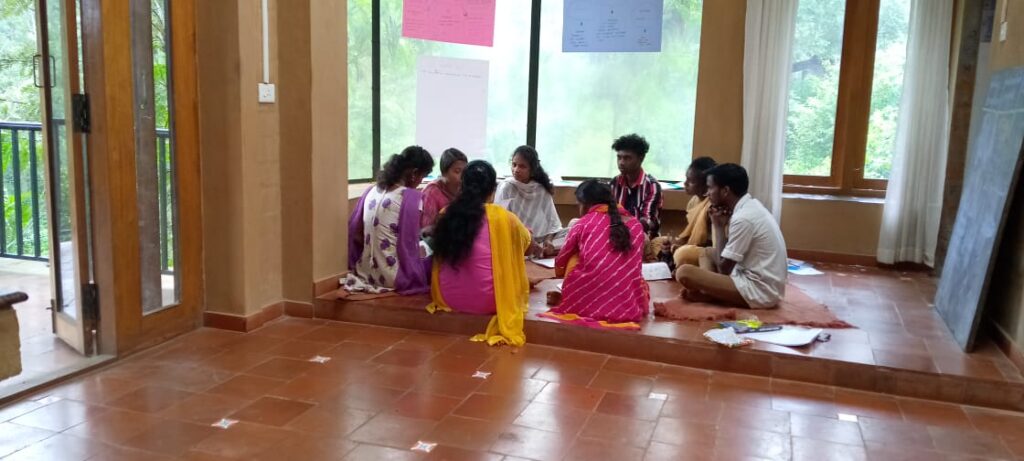Teacher training

This Teacher education project has emerged as a logical next step in the process of the educational initiative of the VBVT. The Trust has been in discussion and dialogue with various stakeholders and educational consultants as to how to go forward and fulfil the objectives it set down at the beginning of the process. This project is the result of these consultations.
The number of children dropping out every year was more than 200. For the community too this has been a great disappointment, because it has cost them a lot to send these children to school. It is obvious that these children left school because they could not relate to the system in any way. The relationship with unsympathetic teachers, quality of education, all these became major issues. The community had done their part – taking the children to the school, but beyond the threshold of the class-room they had no say and no knowledge as to what had to be done.
Given this understanding, that the only way forward is to “…improving teaching and research in the higher education system which generates potential teachers who know their subjects well…” VBVT has decided to launch a programme which can ensure that the teaching of these children is not left to some teacher in the schools, but to well-trained, motivated and capable persons from their own communities. It is in this context that VBVT has drawn up an eight-year programme to train and induct into the local schools 100 teachers.
If this programme can succeed then this can be a real solution to improve the quality of education in specific locations, particularly in adivasi belts, anywhere in India. The government and other NGO’s have been trying hard to improve the quality of education by working through the District Education and Training centres. But this kind of mass training does not help. Also the basic degree B.Ed or D.Ed hardly required that the trainee needs to have practical training. They are bombarded with theory. Even if these attempts help to improve the academic and technical aspects, the general motivation of the teachers and the kind of support systems that they need to be effective in rural India is not addressed at all. This is where VBVT’s project makes a difference.
